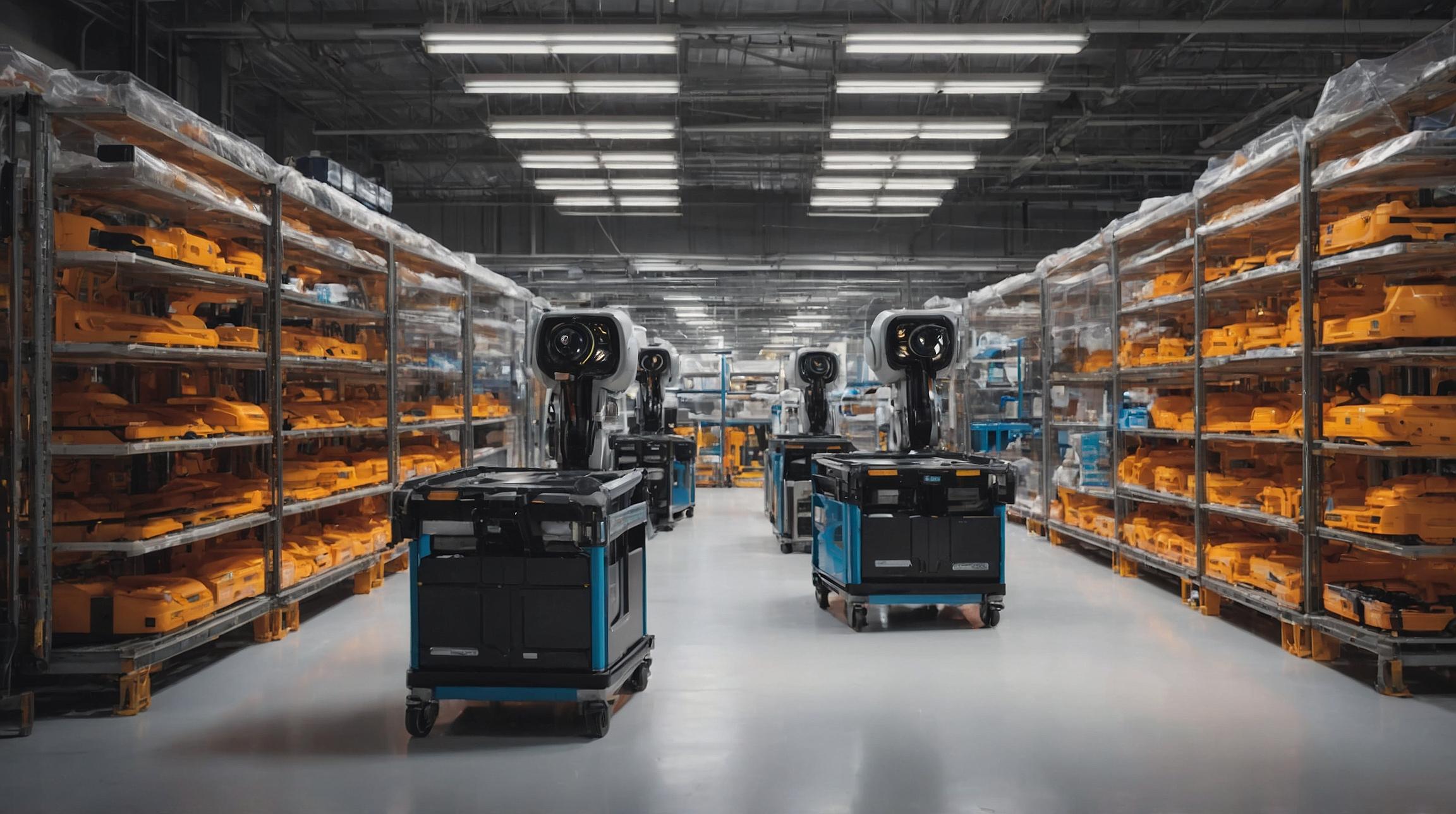The Rise of Artificial Intelligence: Transforming Industries
Artificial Intelligence (AI) has become one of the most transformative technologies of the 21st century, revolutionizing industries across the globe. With its ability to analyze vast amounts of data and perform complex tasks traditionally done by humans, AI has proven its potential to streamline operations, increase efficiency, and drive innovation.
AI is being integrated into industries such as finance, manufacturing, transportation, and retail, to name just a few. In finance, AI-powered algorithms are used to make real-time predictions and optimize investment portfolios. In manufacturing, AI-enabled robots perform repetitive tasks with precision, allowing human workers to focus on more complex responsibilities. The transportation industry is benefiting from AI-powered algorithms that optimize routes, reduce fuel consumption, and improve traffic management. Even in retail, AI-driven systems can personalize customer experiences, recommend products, and optimize inventory management.
Examining the Impact of AI on Job Market Dynamics
The integration of AI into industries raises questions about its impact on job market dynamics. While there are concerns about job displacement, studies have shown that AI is more likely to augment human capabilities rather than replace jobs entirely. AI is expected to create new job roles that require human skills, such as creativity, critical thinking, and emotional intelligence. However, certain jobs that involve repetitive tasks or routine decision-making may be automated, leading to a shift in job requirements.
The skill set required in the job market is also evolving due to AI. To stay relevant, workers need to upskill and adapt to the changing demands of the digital era. It is crucial for educational institutions and training programs to align their curriculum with AI technologies, ensuring that individuals are equipped with the necessary skills to thrive in an AI-driven economy.
Analyzing Ethical Considerations in AI Development
The rapid advancement of AI has sparked ethical concerns regarding issues such as privacy, bias, and accountability. AI systems rely on vast amounts of data, raising questions about how that data is collected, used, and protected. There have been cases where AI algorithms perpetuated biases present in the data, leading to biased decision-making. Ensuring that AI systems are transparent, explainable, and fair is essential to avoid potential harm and discrimination.
Accountability is another ethical consideration in AI development. As AI systems become more autonomous, it becomes crucial to establish clear lines of responsibility when it comes to errors or harmful consequences. Developing frameworks for accountability and regulation is necessary to ensure the responsible deployment of AI technologies.
AI-driven Innovations: Shaping the Future of Healthcare
One of the most promising areas where AI is making significant advancements is healthcare. AI-powered systems have the potential to revolutionize diagnostics, drug discovery, personalized medicine, and patient care. AI algorithms can analyze medical images with greater accuracy, assisting doctors in diagnosing diseases such as cancer, heart conditions, and neurological disorders.
AI is also transforming the field of drug discovery by accelerating the identification of potential drug candidates. By analyzing vast amounts of scientific literature and genomic data, AI algorithms can uncover valuable insights and help researchers identify new targets for drug development.
In patient care, AI-powered solutions can monitor patient vitals, detect early warning signs of deterioration, and even predict patient outcomes. These innovations have the potential to improve healthcare outcomes, reduce costs, and enhance the overall patient experience.
Unveiling the Limitations of Artificial Intelligence Systems
Despite its incredible potential, AI systems also have limitations that need to be acknowledged. AI relies heavily on data, and the quality of the data can greatly impact the accuracy and reliability of the AI algorithms. Biased or incomplete data can lead to biased or inaccurate predictions, potentially perpetuating societal biases.
Additionally, AI systems lack common sense reasoning and a deep understanding of human emotions and intentions. While they excel at specific tasks, they struggle with tasks that require context and a broader understanding of the world.
AI systems also raise concerns about data privacy and security. The collection and handling of personal data require strict regulations and protocols to ensure that individuals’ privacy is protected. Ensuring the security of AI systems is essential to prevent any malicious use or unauthorized access to sensitive data.
In conclusion, the rise of AI is transforming industries across the globe, presenting opportunities for increased efficiency, innovation, and job creation. However, it is crucial to address ethical considerations, upskill the workforce, and acknowledge the limitations of AI systems. By doing so, we can unlock the full potential of AI and shape a future where AI technologies work in harmony with human capabilities to create a better world.
Analyst comment
Positive news: The rise of Artificial Intelligence is transforming industries and presenting opportunities for increased efficiency, innovation, and job creation. AI has the potential to streamline operations, optimize processes, and personalize experiences. It is expected to augment human capabilities rather than replace jobs entirely.
As an analyst, I predict that the market will see a surge in demand for AI technologies and services. Industries will continue to integrate AI into their operations, leading to increased productivity and cost savings. However, there will be a need for upskilling the workforce to adapt to the changing demands of the digital era. Ethical considerations such as privacy, bias, and accountability will also be crucial in the development and deployment of AI technologies.













